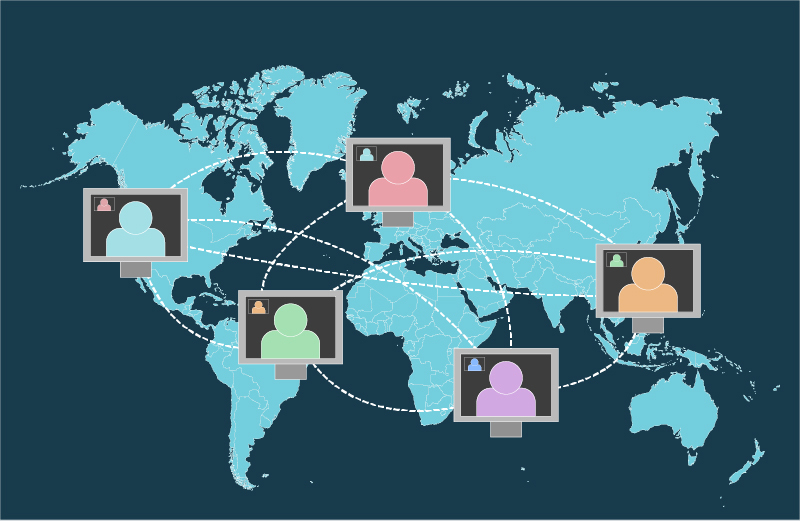Source: UF LATAM
Boosted by the vital role of technology during the pandemic, UF has continued growing its virtual exchange outreach and training initiatives during the last year. Using virtual exchange enables educational programs to connect students around the world from different backgrounds for sustained interaction and collaboration.
At UF, this innovating teaching and learning method has already been implemented by faculty in multiple colleges and is led by the UFIC Office of Global Learning (OGL) as a method of internationalizing the curriculum. The OGL offers a five-week VE training for faculty, which guides participants through the process of developing a VE project and familiarizes them with resources at UF for further support.
In the spring semester, Dr. Mary Risner, Associate Director of Outreach at the Center for Latin American Studies, organized a VE training for college administrators throughout Florida, expanding its reach beyond UF and promoting its value at state colleges. Ten professionals from the international offices of their higher education institutions participated. During this five-week training, participants learned about best practices for implementing and facilitating VE, drafted an action plan for VE efforts at their own institution, emulated VE in their use of technology to collaborate, and shared their VE successes and questions with the group.
The state colleges training was made possible through USDOE Title VI funding and a collaborative effort with the Florida Consortium for International Education (FCIE) and Unicollaboration, a non-profit professional association dedicated to increasing awareness and the practice of VE.
After the success of the VE training for state college administrators, the Center for Latin American Studies is offering a 5-week online training for faculty over the summer. The summer training is a continued collaboration with the FCIE and UFIC that focuses on the pedagogical aspects of designing and implementing a VE module. In addition to UF faculty, this training is open to K-12 educators across the state from Volusia, Seminole, and St. Johns counties.
International partners are primarily from Mexico, in affiliation with Monterrey Tec higher ed and their network of high schools (Prepa Tec). Other global partners are from Uninorte in Colombia and the Universidad Mayor de San Andres (UMSA) in Bolivia. Subject areas of focus span across business, humanities, Spanish, social sciences, healthcare, and aerospace and engineering.
As UF has been growing its virtual exchange courses, the goal of these initiatives is to provide outreach to support and establish a network of collaborators who will also champion VE and continue to engage in resource sharing and partnering with Latin America and other world regions.
Those interested in learning more about virtual exchange at UF can find more information and resources on the UFIC website.

